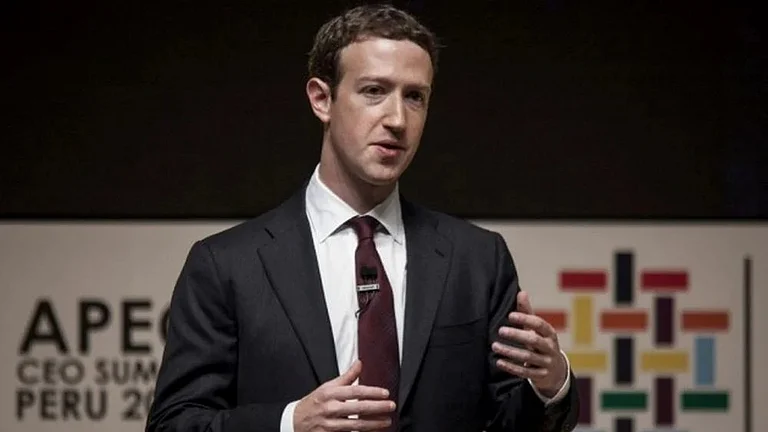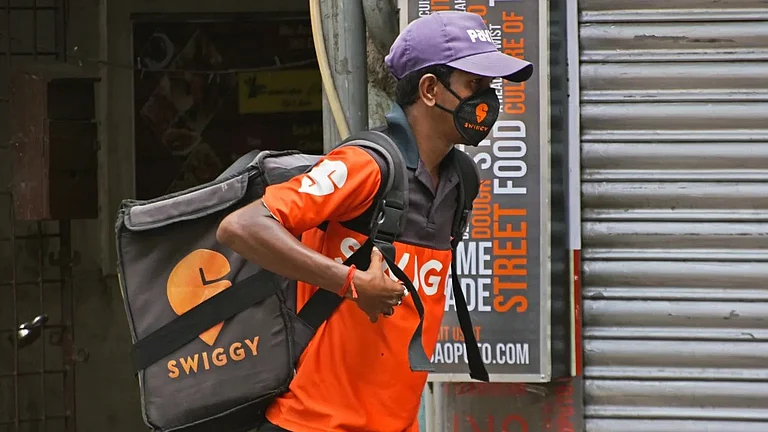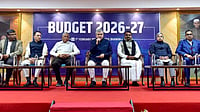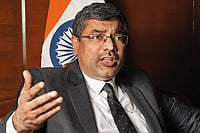
Ban on Real-Money Games: The bill prohibits online games involving monetary stakes, imposes fines and imprisonment for offenders, and bars payment gateways for unlicensed platforms.
Promotion of E-Sports & Social Gaming: E-sports are recognised as legitimate sports with tournament standards, training academies, and incentives for innovation, while social gaming is regulated for safety and educational content.
Economic & Legal Implications: The move may impact a $4B industry generating ₹20,000 crore in taxes and 2 lakh jobs; the central legislation overrides state laws to address cross-border gaming and regulatory gaps.
India has approved a bill to regulate its booming online gaming sector, drawing a sharp distinction between e-sports and real-money games, while effectively seeking to ban the latter and proposing strict penalties for violators.
The Union Cabinet on Tuesday cleared the Promotion and Regulation of Online Gaming Bill, 2025. The Ministry of Electronics and IT, in its draft note, flagged both the exponential growth of the industry and rising concerns around addiction, mental health, opaque algorithms, and potential misuse for money laundering and terror financing.
In its draft note to the Cabinet, the Ministry of Electronics and IT not only underscored the sector’s exponential growth but also highlighted the emerging concerns that accompany this rapid expansion.
According to the government, a growing number of individuals have fallen victim to financial losses due to online money gaming, sometimes resulting in extreme outcomes such as suicide. In many cases, players are lured into a cycle of gaming with little awareness of the risks or legal protections. These platforms frequently employ predatory monetisation tactics, including microtransactions, loot boxes, and reward systems designed to exploit psychological triggers and increase spending.
The government said that online money gaming has provided channels to facilitate money laundering, fraudulent financial transactions, and use of gaming platforms for illicit activities, including cybercrime and terror incitement. Law enforcement agencies face serious difficulties in tracking and regulating these platforms, particularly those hosted or operated from outside India.
However, the bill promotes e-sports and social gaming by recognising e-sports as a legitimate sport, supporting training and tournaments, and creating registration and safety frameworks for social games. It encourages innovation, safeguards users, fosters indigenous development, and integrates gaming into education and recreation, positioning India as a global hub.
In this context, how will the proposed regulation, particularly the ban on real-money online gaming impact the various stakeholders across the ecosystem? Here is the nitty gritty.
What Does the Bill Propose to Do?
The legislation seeks to regulate online games and promote e-sports and social gaming. It prohibits all online games involving monetary transactions, while allowing competitive skill-based gaming without wagering.
“This sector and in particular, online money gaming raises significant concerns, like addiction among children and youth, mental health issues, financial losses leading to suicides, manipulate practices including opaque algorithm & bots, lack of uniform regulation across states, cross-border & inter state operations facilitating in some cases money laundering and terror financing,” the ministry said in the draft.
The bill mandates licensing for online gaming platforms, KYC verification for all users, and parental consent for minors. It also empowers the government to designate a regulator for e-sports and social games.
Payment gateways and UPI services will be barred for real-money gaming platforms, with access restricted to licensed operators. Offenders face fines and imprisonment of up to three years, with harsher penalties for repeat violations. Advertising or promoting real-money games will also be punishable.
Real-Money Games vs Esports: How the Bill Treats Them Differently
Under the Bill, e-sports are defined as organised, competitive online games conducted in multiplayer formats with predefined rules. These games must be recognised by national or regional sports federations or Olympic bodies and have outcomes determined solely by skill factors such as physical dexterity, mental agility, or strategic thinking. Players may pay registration or participation fees, and performance-based prize money is permitted. Crucially, e-sports explicitly exclude any form of betting, wagering, or stakes placed by participants or third parties.
In contrast, online money games are defined as online games where users pay fees, deposit money, or stake other valuables in the expectation of winning money or equivalent stakes in return. These can include games of chance, skill, or a mix of both. Unlike e-sports, the defining feature here is the financial stake and monetary reward mechanism.
The Bill therefore positions e-sports as a regulated sport-based activity aligned with national sports governance, while categorising online money games as gambling-like activities subject to stricter prohibitions and controls.
The report by Interactive Entertainment and Innovation Council (IEIC) highlights that Real Money Gaming (RMG) dominates the market, contributing 85.7% of the total revenue at ₹ 27,438 crore (US$ 3.2 billion) in 2024.
Encouragement of E-sports
The India esports market size reached US$ 200.7 Million in 2024. Looking forward, IMARC Group expects the market to reach US$1,088.4 Million by 2033.
The proposed legislation places a strong emphasis on nurturing e-sports and online social gaming, positioning them as positive contributors to India’s digital and creative economy. The Bill seeks to formally recognise e-sports as a legitimate sport, aligning India with global practices, and outlines measures such as setting standards for tournaments, establishing training academies and research centres, and offering incentives to build dedicated platforms. By integrating e-sports within broader sporting policies and partnering with federations, the government aims to create pathways for youth to enter the global competitive gaming ecosystem.
For online social games, the Bill proposes a framework to register and categorise them, ensuring safe, age-appropriate, and educational content. It calls for the creation of mechanisms to support game development, increase public access, and embed social gaming in recreational and educational initiatives. Awareness campaigns will promote their role in digital literacy, skill development, and healthy recreation.
Institutionally, the Bill envisages setting up a central authority to oversee regulation, content standards, and user safety. The approach is designed not only to safeguard players but also to encourage innovation, attract investment, and boost indigenous game development, thereby supporting Atmanirbhar Bharat and positioning India as a global hub for responsible, competitive gaming.
The regulatory and enforcement machinery
The bill further mandates that all online gaming platforms operating in India must register and obtain a licence from the designated regulatory authority.
The draft Bill also mandates KYC verification for all users, and requires parental consent in case of minors accessing online gaming platforms.
In addition, it empowers the government to establish or designate an authority to carry out all regulatory functions under the Act, including those related to e-sports and online social games.
The draft bill cuts off banking access and payment gateways, including UPI, for real-money gaming platforms. Under the new norms, only platforms that obtain a licence from the proposed regulatory authority will be allowed to use authorised payment gateways and UPI services.
Further, the Bill prescribes penal provisions, including fines and imprisonment, with enhanced punishment for repeat offenders.
Under Section 9, anyone found offering, aiding, abetting, inducing or otherwise engaging in online money gaming services faces imprisonment of up to 3 years and a fine of up to ₹ 1 crore.
In addition, individuals or entities that advertise, promote or sponsor any online money game can face imprisonment of up to 2 years or a fine of up to ₹ 50 lakh.
Repeat offenders face enhanced penalties, including 3–5 years of imprisonment and fines of up to ₹ 2 crore. All these offences are classified as cognizable and non-bailable, giving authorities broad powers to take action without a warrant.
Taxation provisions in the bill
As far as taxation is concerned, a 28% GST has already been imposed (since 2023) on activities such as online gambling, betting and lottery. The draft bill does not prescribe any additional tax over and above this.
However, industry experts argue that in the attempt to curb offshore gambling platforms, legitimate domestic players could end up being adversely affected as well.
“The bill seems to be a bit contradictory itself in places and originally seems to target money based offshore gambling and betting apps while collateral damage seems to be law abiding tax paying Indian startups emerging in the online gaming space,” said Rameesh Kailasam, President & CEO of IndiaTech.Org.
Since the government plans to ban real-money games even those classified as skill-based multiple gaming industry bodies have written to the Union Home Minister warning that this move could result in an annual tax revenue loss of ₹20,000 crore for the government.
“The Finance ministry was as reported proposing a higher tax rate and the matter on the earlier levy is in the Supreme Court. The current bill seems to make all that irrelevant as there will be zero revenue from this sector as all startups and Rs 20,000 crore in taxes will shut instantly and it will benefit all overseas platforms as users will also shift to those platforms,” he added.
This is a $4 billion industry that has contributed ₹20,000 crore in taxes, generated over 2 lakh jobs and fostered 2,000+ gaming startups across India, according to industry bodies.
Priyank M Kharge, Minister, Information Technology, Karnataka said that in Karnataka alone this sector accounts for 25% of the market and over ₹1,350 crore in taxes annually.
In a LinkedIn post, Kharge said that wiping out this sector will not solve the problem, it will only drive over 40 crore users in our country to illegal offshore betting platforms.
“The fallout won’t stop at lost users. A ban risks writing off more ₹25,000 crore in FDI, losing ₹10,000 crore in annual industry spends across ads, marketing, consulting and services and forcing over 400 companies to shut down,” he added.
Legal Implications of the Bill
The Cabinet note says that there is no uniform national law on online gaming. States have enacted varied laws on gambling, and courts have given inconsistent interpretations regarding the distinction between "games of skill" and "games of chance." This inconsistency has created a regulatory vacuum. Moreover, many games monetising through in-app purchases, virtual currencies, and rewards systems blurs legal boundaries, making it extremely difficult for law enforcement to ensure compliance or protect consumers.
Under the constitution of India, Entry 34 of the State List (List II, Seventh Schedule) gives state governments the exclusive power to legislate on matters related to betting and gambling. But with this bill, the central government is going to legislate the sector which can be opposed by the states.
However, the Bill has been introduced as a standalone central legislation, which allows it to override conflicting state laws.
The draft notes that online real-money gaming platforms increasingly operate across state borders and even through offshore servers pushing the issue beyond the traditional scope of a State subject.
“Given that such platforms involve cross-border digital activity, online financial transactions and cybersecurity risks, the government argues that the matter has become one of national importance. Accordingly, Parliament may invoke its legislative powers under various Union List entries,” mentioned the bill.
With the Union Cabinet having cleared ‘The Promotion and Regulation of Online Gaming Bill, 2025’, the legislation is now set to be tabled in Parliament on Wednesday. In the meantime, various stakeholders particularly those representing real-money gaming platforms have begun reacting to the draft and are actively engaging with the government to express their concerns.
“What we need is a rational regulatory framework that protects users and national security while allowing legitimate skill-based gaming to thrive. Banning games of skill under the guise of controlling gambling will hurt innovation, jobs and investment. We should be building guardrails, not burning down an entire sunrise sector,” added Kharge.




































